Flood Aftermath: Over N1bn donations unaccounted for as Jigawa victims lament hunger spike, govt neglect
By Elijah Akoji
Flooding represents a major environmental risk for many countries around the world with potentially devastating effects on human lives, health, and livelihoods. In this investigation by SOLACEBASE, Elijah Akoji, paid a visit to Auyo, Ringim, Kirkasama, and Hadeja LGAs, documents how surviving victims groan in pain and hunger while rebuilding back their homes, and resolve to irrigation farming to sustain their families.
For the people of Jigawa state, the 2022 rainy season came with so much pain and anguish, houses destroyed, farmland flushed away, roads ravaged, bridges divided by the wave of the water, and many innocent souls killed by the flood. While lives have to continue, with many families counting their losses, and begging for help to feed, affected victims like Ibrahim Zakari are returning to their community to rebuild their houses.
Ibrahim Zakiru, 55, in Ganuwar Kuka, Karkasama LGA of Jigawa state, had just experienced the flood for the first time, while counting his losses, the death of his son, Aminu, remain his worst nightmare.
Read Also:Dantata, Abdulsamad, others raise N1bn for Jigawa flood victims

“Aminu was only 18 years old and was under treatment when the flood came and was asleep when we all ran out for safety when the flood came. Aminu got trapped inside the flood until he drowned, it was just his body we saw floating on the water when we rushed to help,” Bello said.
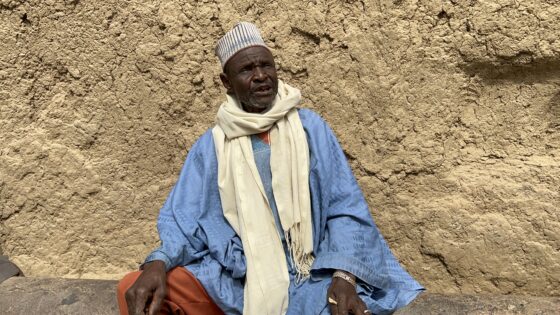
“We have never experienced flooding in Ganuwar Kuka community, until this year. Crying at this time won’t bring back my son, I just want to rebuild back my house and have a decent place where my family can stay, if only I can get help from anywhere to do this,” he added.
Ganuwar Kuka community is one of the communities affected by floods in Jigawa state, killing scores of persons and destroying millions of properties including farmland.
Dauda Nura, the father of six lamented that farming is his only source of livelihood, noting that his only hope of making money from harvest has been cut short by the flood disaster after securing a loan to invest in his farm.
“Knowing that it’s a secured land and has never had any experience of the flood, we invested so much into our farms that I even secured a loan of N300,000 from a microfinance bank.
“Without any disaster of this sort, I do harvest up to 100 to 130 bags of grains from my farm annually, and then continue with irrigation farming immediately, but everything is gone. If the flood had been delayed for like two weeks, many of us here would have harvested what we planted, but that was not the case. We lost everything,” Nura said.
Jigawa Flood Disaster
Between September and October, floods disrupted many communities across Nigeria’s 36 States as hundreds of villages and urban centers were submerged in water. According to official statistics, the flood disaster unsettled over 2.4 million people, and over 600 fatalities were recorded within this period.
Similarly, expansive hectares of farmlands across affected states were swept off. While many Nigerians described the flooding incident as the worst aftermath of climate change Nigeria has witnessed since the nation recorded a similar disaster in 2012, environmentalists argued that the impact of the floods would have been minimal had the necessary infrastructures needed to control floods across zones in the country been properly maintained by the government.
Read Also:Investigation: How Rep member, agency abandoned communities, siphoned project funds in Benue State
During a visit to Jigawa, one of the most affected states in Nigeria, residents said that the worst hit is mostly residents of agrarian communities hosting major tributaries of the Benue River that cuts across seven of the 27 local governments in the State.
According to the official tallies of the National Emergency Management Agency (NEMA) zonal office in Jigawa state, within three months (July to September through October) when rainfall was at its peak, 12 LGAs were submerged. Within this period, 82, 730 residents across 225 communities in these LGAs were affected, 13,788 households got damaged, 51 people got injured and 27 deaths were recorded. Farmlands worth billions of naira were equally destroyed.
Affected LGAs include; Kafin Hausa; Malam Madori, Hadejia, Guri, Auyo, Birniwa, Jahun, Miga, Kiyawa, Birnin Kudu, Kaugama, Babura, Gwaram, Dutse, and Kirikasamma LGAs, NEMA said.
SOLACEBASE observed that the flood disaster that struck the state was mostly aggravated by the poor management of waterways pathways and failure to dredge major rivers and tributaries across farm settlements in the state.
Over N1 Billion Donations with no Impact
Under Alhaji Bashir Dalhatu, the committee Chairman of the flood victim support fund, the Jigawa state government raised over N1 billion naira as a fund to support flood victims across Jigawa state. These donations came from different businessmen and philanthropists like Alhaji Aminu Dantata, Aliko Dangote, and Abdulsamad Isyaku Rabiu donated N200 million.
Other donors included the members of the state and National Assembly, as well as Council Chairmen, Zenith Bank, Jaiz Bank, FCMB, Sterling Bank, GTBANK, and Unity Bank, who were among the financial institutions that made donations.
Interestingly, the Jigawa State Government donated a total of N250 million, while Governor Muhammad Badaru donated N25 million on behalf of himself, his family, and his company, Talamis Group
Gabarin Community where Hunger Spikes
With over 2,000 residents, Gabarin in Ringim LGA is one of the communities destroyed by flood in 2022, the people of Gabarin lamented how they never felt the assistance of the government.
While they are rebuilding back their homes, how to feed and what to eat remain a major concern for them as there was no single harvest or stored food to fall back on after the flood destroyed all they have stored to sustain their family.
Galadima Gabarin, and Hassan Husseini, narrate how a boat was used to evacuate them from their community when the water took over their community, and explain how they only got help from a philanthropist.
“We became an object of pity in our own community, the government was aware of our condition but neglected us, it took the philanthropic gesture of Alhaji Isa Gerawa, who brought in some local boat, and evacuated us to his community, where he provided for us, gave us shelter, health care and ensured we didn’t sleep under mosquitoes,” Husseini said.
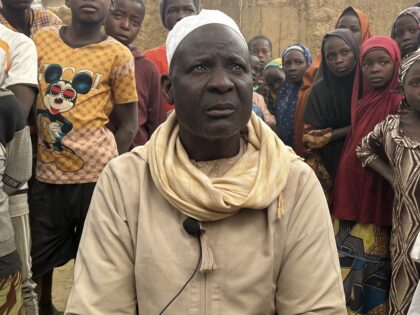
“Millions of property and farmland were destroyed and people’s houses were washed down by the flood, most people have lost their PVCs and may not be able to vote in the coming election, yet the government ignored us and never cared about our wellbeing,” he added.
Ahmadu Ado, and Dagashin Gabarin, described the flood as an unfortunate incident that has put a lot of people in pain, hunger, and increased poverty, lamenting how no government official ever cared for them despite knowing their condition.
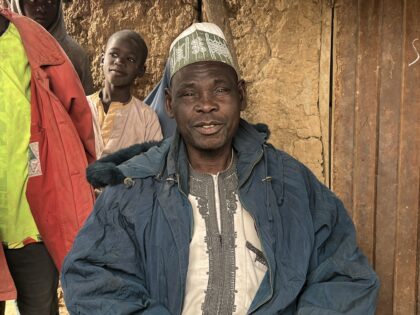
“Disasters are from God he said. We can’t question God, but we can question the neglect of our own elected officials, who never cared for us, our children can’t go to school during this period, they will all have to help their parents on the farm, all the rainy reason farm has been destroyed by the flood, so it will be wise for them to help their parent than to go sit in the classroom to learn, what will they eat after learning,” Ado said.
Bala Ado could not save even one of his goats; the flood took everything he had.
“While we were taken out from our community, I could see my house and other houses taken over, we watched our animals floating on top of water we couldn’t help them, we lost everything and now we are starting all over again from the scratch,” Ado said.
For Zulai Sule, a nursing mother who gave birth in one of the IDP camps described the government as a selfish entity.
“If not for the help of Alhaji Gerawa, I would have died in the flood, he evacuated us and provided the necessary health care needed and it was during that process I gave birth in the camp, only God will regard Alhaji Gerawa for his philanthropic kindness,” Zulia said.
Auyo LGA Not Spared.
In Majiyawa Kaya community while houses and farmlands were all destroyed, graveyards were not spared; dead bodies were seen floating on water, it was a traumatic experience for the people of Majiyawa to see their loved ones who have died, and been exhumed by the flood.
Hassan Yahaya, the father of 12 children and 3 wives was made homeless and he now lives in hurt after returning back to see that all his houses has been destroyed by the flood leaving no block standing.
He narrates how the flood came through the cemetery despite the barricades done to protect it and exhumed dead bodies.
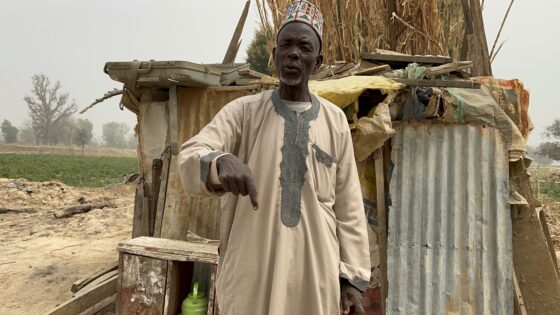
“If we had known that flood will come to visit us, we will be prepared, it took us all unaware, it was when I saw a dead body floating on water coming towards our direction that I immediately realized that we are in a big mess, it didn’t take 4 hours we have all taken a position on different trees it was from that direction I saw how more than one dead body was floating on water,” Yahaya said.
“My whole house was destroyed, not even a pin was taken from the house, we are back and stuck with a bigger problem of what to eat, no food, from the block we are molding to rebuild our houses, we sell from inside to buy food for the house,” he added.
Read Also:WASH takes a back seat as Kwara govt embarks on PHCs renovation
Abdullahi Maiungwa, the community head of Majiyawa Kaya, described the experience as a terrific one and a great setback for everyone including the government.
“Imagine, we are all back in our community, and we are totally abandoned to our fate, we have lost everything in just one disaster, no one ever saw this coming. It’s a tough time for all of us, we don’t have what to eat, yet we just have to use our last energy on the mold blocks we will use to rebuild back our homes,” Maiungwa said.
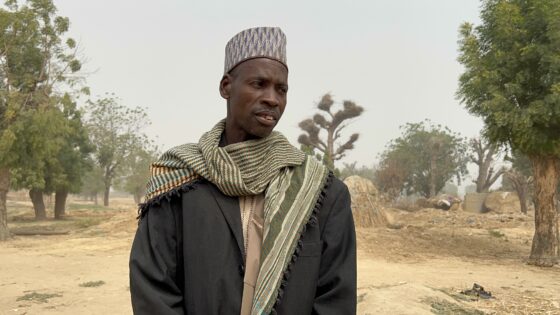
“I doubt if any of us here will want to vote in this coming election, since they have abandoned us, of what use is it to us to elect a leader who does not care about us,” he added.
Committee Keeps Mum
Knowing that over N1 billion naira was raised to support the flood victims when SOLACEBASE contacted the committee chairman, Alhaji Bashir Dalhatu, who is in the best position to give a detailed breakdown of how the committee has cushioned the negative impact of the flood on the affected people, he requested that our reporter should come to Dutse, the Jigawa state capital and meet him.
Our reporter arrived in Dutse on the day of the appointment and just a few hours before the meeting Bashir Dalhatu sent a text that he had an urgent appointment in Kaduna, and will not be available for the meeting.
Several messages sent to the committee chairman by this journalist requesting that he should direct the secretary of the committee to speak were not responded to.
Bala Ibrahim, Jigawa State Commissioner for information who is serving as the secretary and spoke person of the Bashir Dalhatu-led flood committee declined to respond to his calls and messages.
A SOLACEBASE publication supported by NAMIP

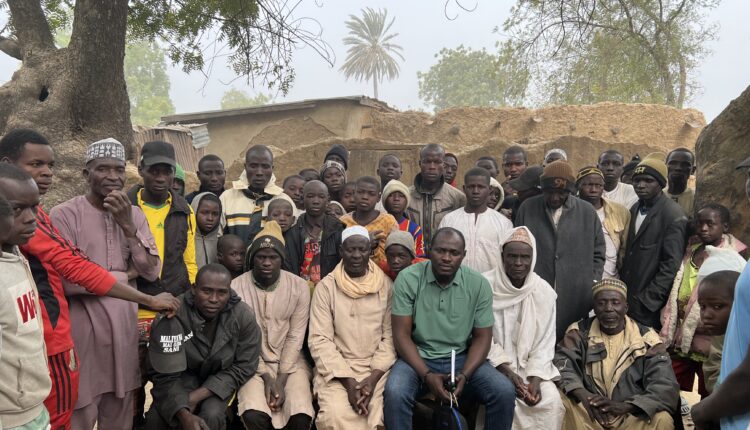

Comments are closed.